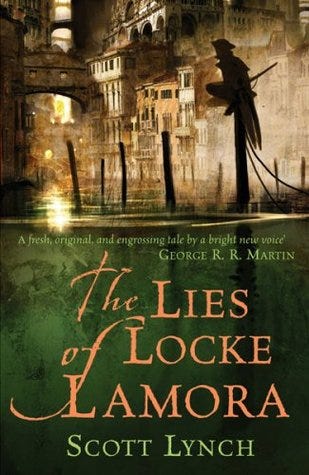Trending
Opinion: How will Project 2025 impact game developers?
The Heritage Foundation's manifesto for the possible next administration could do great harm to many, including large portions of the game development community.
A short recommendation of resources primarily aimed at indies that aren't writers, or can't necessarily afford one, but who still want to have the best writing they can in their game.

I was instructed to buy this book by Keith Lee, the founder of Counterplay Games and creator of the most excellent Duelyst, for which I help write the lore. He’s a great writer and world-builder, whose CV includes things like Diablo 3, Insomniac games and lecturing at Stanford. So I bought it quickly.
“No book in shorter space, with fewer words, will help any writer more than this persistent little volume.”
― The Boston Globe
In the spirit of that quote — what more is to say?
Get yourself a proper one, don’t just use the computer/google, you don’t expand your vocabulary in the same way without putting a tiny bit of effort into it. And you can’t just flip idly through Google, enjoying the mouth-feel of lots of esoteric descriptors you’ve never even seen before.

Not this kind.
Maria Popova is the creator/curator of the brilliant knowledge and wisdom gathering, synthesising, explaining blog with-a-kinda-gross-name Brain Pickings. Her curatorial taste alone is impressive enough, be you into writing, wisdom, meta-physics, feminism or else, but she’s a bloody good writer/reviewer in her own right too.
If you want to tell stories, the simple fact is you’re not going to find much more inspiration and collected, compassionate wisdom about the human condition than is contained within Popova’s newsletter digests.
Keep it to hand. You’re not going to copy it, and being heavily influenced by something is not stealing. After all, ‘it’s not where you take it from, it’s where you take it to.’
You need a reference. You need to stay passionate. Your favourite novel has excellent, pacy plotting, well fleshed out characters with distinct tones of voice, and snappy but evocative exposition.

A really, very good book.
I actually have a few books for this purpose on rotation. Currently, The Lies of Locke Lamora graces the venerable spot atop my thesaurus by my left elbow. I love the argot, the characters are venal but loveable.
Every time I leaf through it, either to an earmarked favourite passage or dialogue, or whether I open it at random, I find inspiration for a new scene, line of dialogue, and to up my writing game in general. I also smile a bit, which is an important face-stretch to do at least once an hour.
Lots of media and mediums have a representation problem, let’s be honest. Kameron Hurley addresses that with this pithy collection of kick-ass (figuratively and tonally) essays. Rest assured, this isn’t a book purely about sticking it to the Man, though that’s also an important function. There’s plenty of straight up narrative and story-telling wisdom contained herein too.
The book overall isn’t so much about the technical side of writing — which is why I recommend it to non-writers — but it will give you plenty of inspiration for how to create characters and worlds that resonate with people that aren’t just like you. This is especially true and important if you, like me, are a straight white middle class Western male.
Did I miss anything obvious? Holler at me.
Perhaps you’ll also find my podcast elucidating — on which I interview writers and creators across books/games etc.
Complement this with my article on ‘Story-sense’ vs. story-telling.
You May Also Like